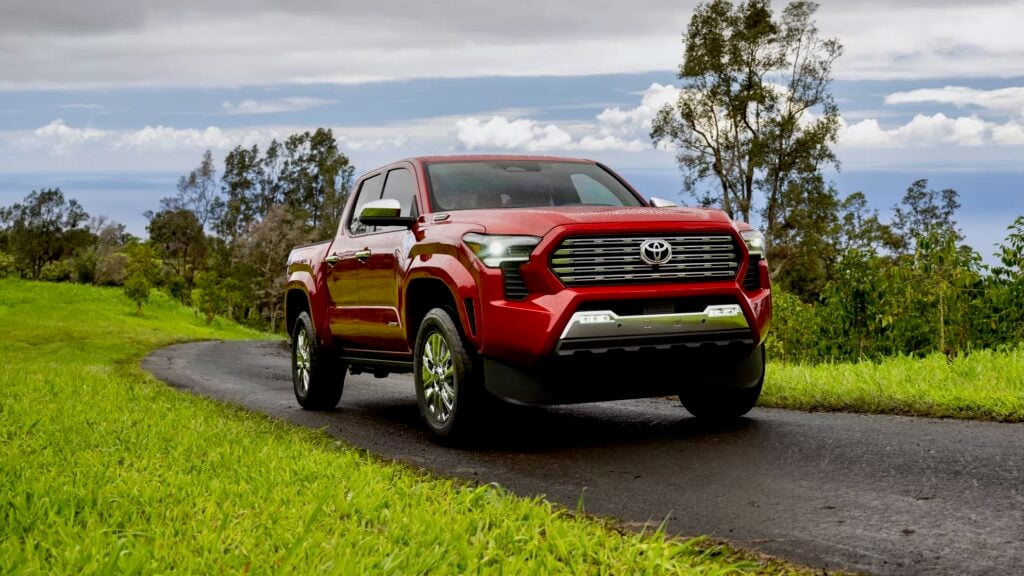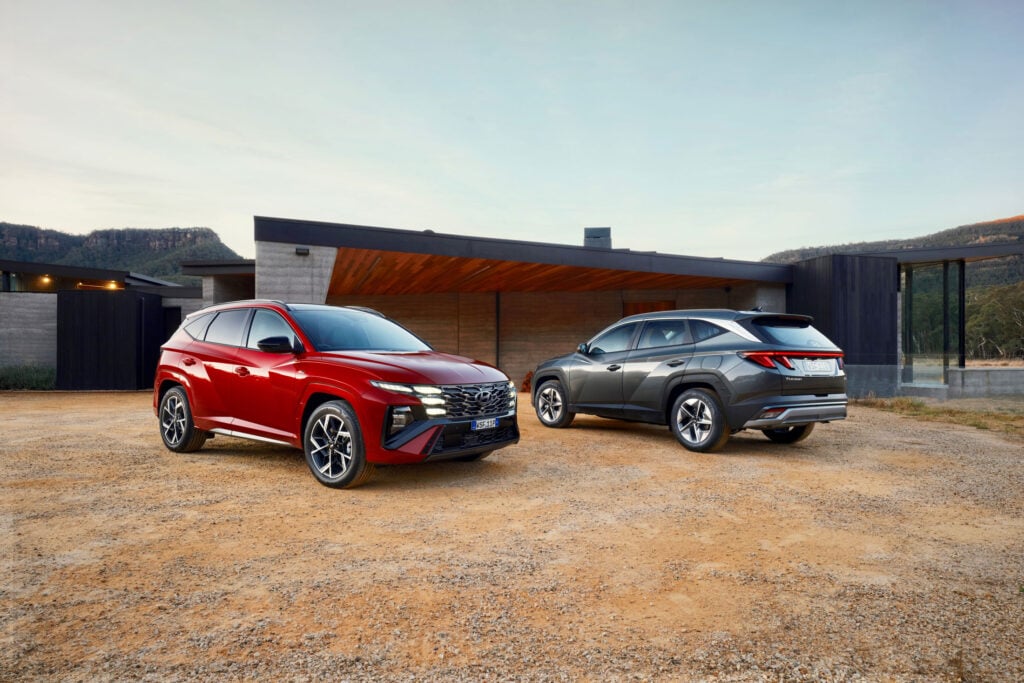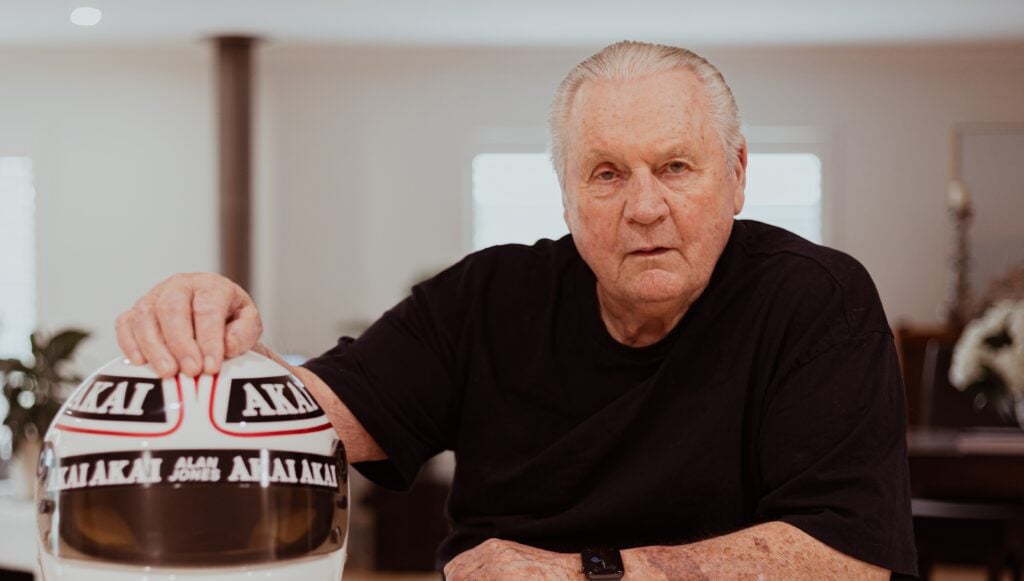This week, Porsche unveiled its wild new 2024 911 Dakar, a jacked-up safari-ready coupe inspired – as its name and debut livery suggests – by the iconic Porsche 953’s victory at the sixth running of the gruelling Paris-Dakar rally event of 1984.
Even better, the new Porsche 911 Dakar is confirmed for an Australian launch, due here in late 2023.
It’s going to feel like a mighty long wait, but what’s more, we won’t expect to see too many of them in the wild. Why? A mere 2500 examples will be built, and while Australia has not been given a specific number of slots, its GT3 RS-rivalling $491,400 price tag should ensure it remains a relatively rare sight here.
You can get all the details on the new 911 Dakar at the link below, but before you go, you should put your feet up, scroll down, and enjoy a re-read of Michael Stahl’s incredible 2000 crossing of the Simpson Desert in a Carrera 4.
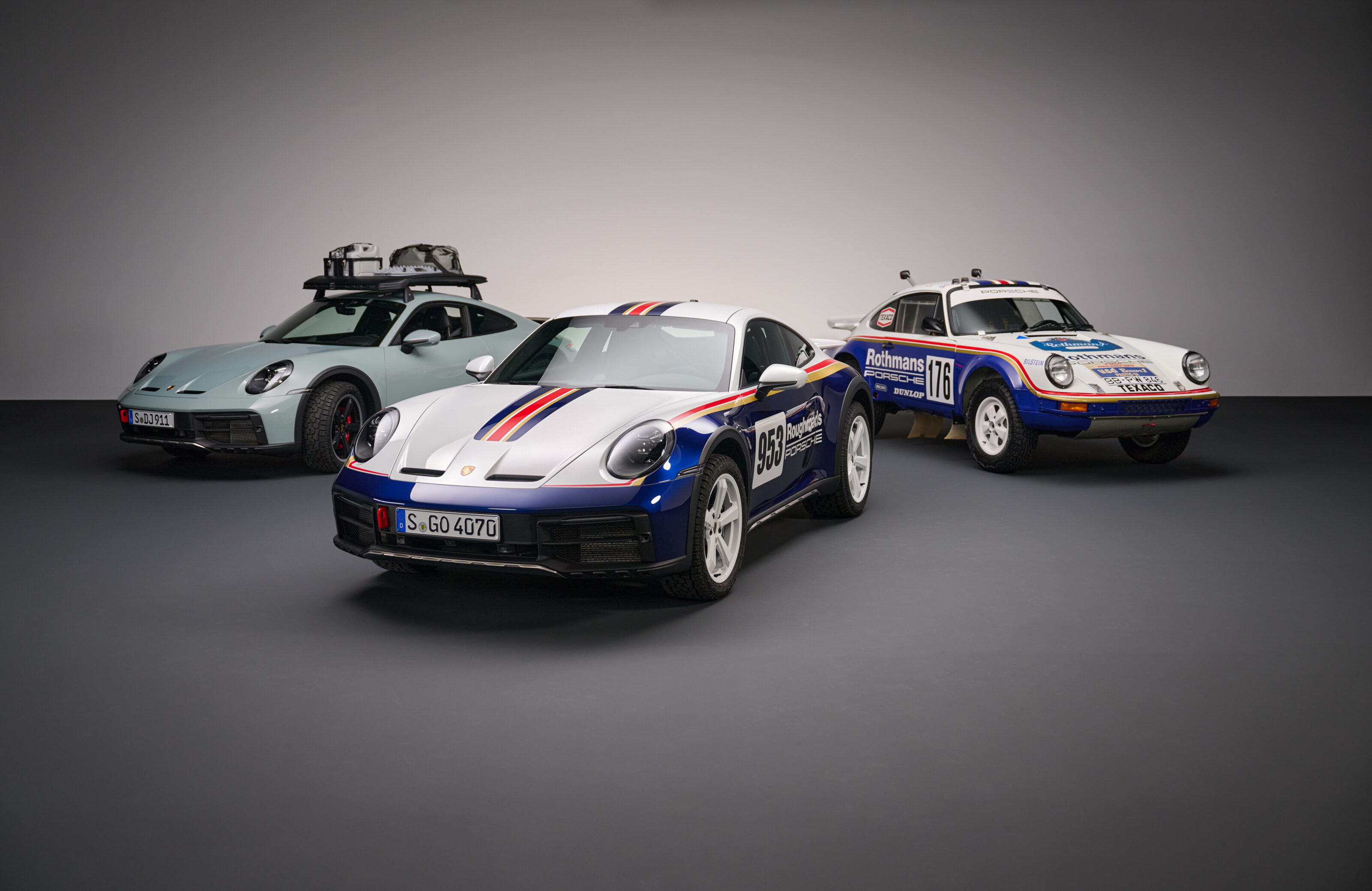
January, 2000: Stahl’s Simpson crossing
911, Big Red & me
I’ve never gone off-road in a new, $200,000 Porsche 911 before. Not with my eyes open, anyway.
Oh, sure, I’ve outbraked myself into the odd corner, run out of talent and then tarmac on race circuits, cringed while somebody else’s underside goes scraping through the grass and gravel. Some of those were probably Porsches.
But never before have I actually driven off the road in a 911 with the intention to continue doing so. For five days. To collect the dumb, delicious honour of making it the first sports car to cross the Simpson Desert.
Straddling the borders of South Australia, the Northern Territory and Queensland, the Simpson is the world’s largest ‘parallel-dune’ desert. Its 1100 reddish-yellow dunes run north to south like a giant Smith’s Crisp, spiced with salt and clay flats, gibber rock plains and clumps of saltbush and spinifex.
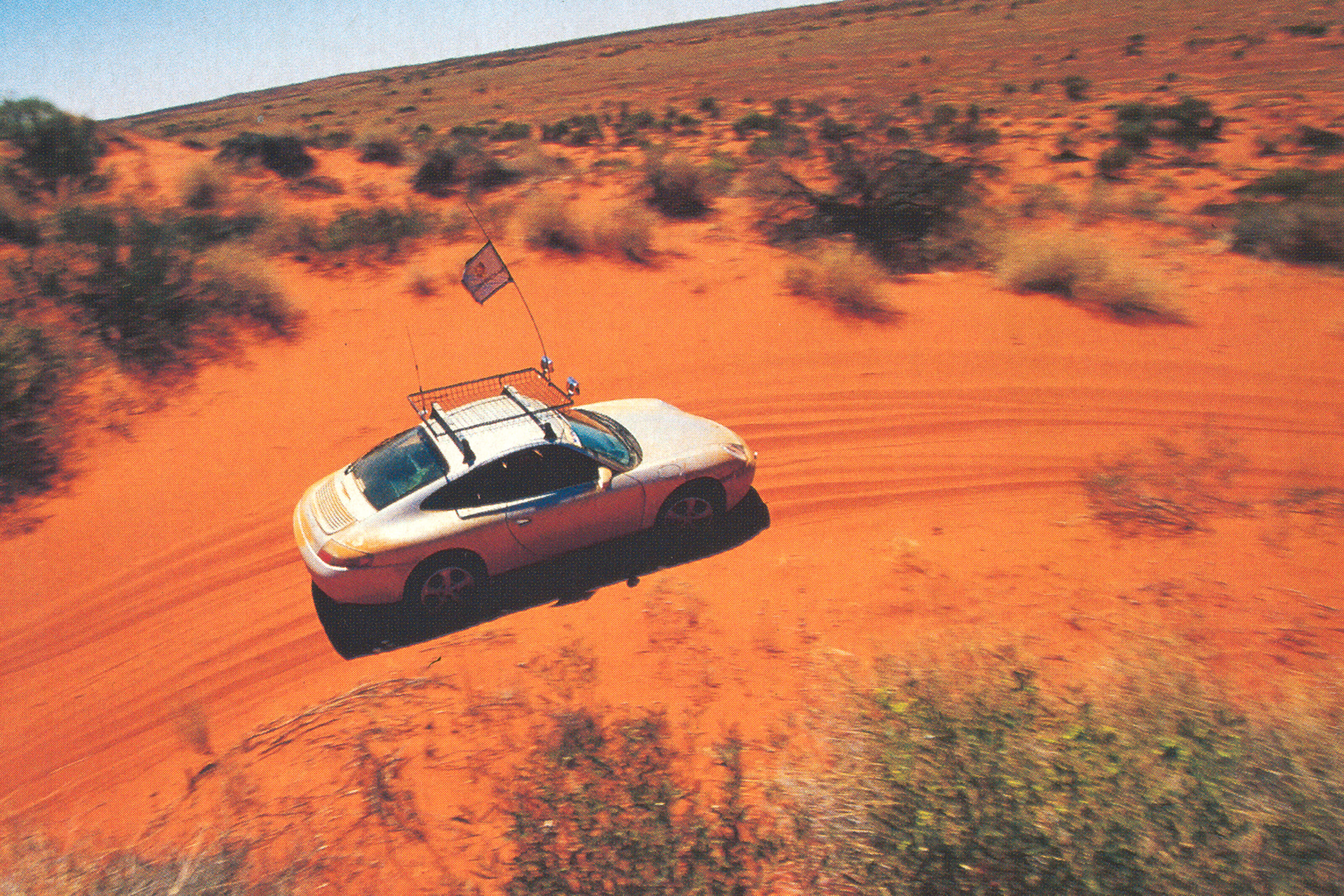
People wax lyrical about the fragile beauty of a desert, but the Simpson’s a gnarly bastard any way you slice it. Temperatures can top 50 degrees between October and May. The annual rainfall of 125mm tends to be delivered in buckets rather than watering-cans, turning the clay flats into utterly impassable, axle-eating quagmires. But if you want water to drink, well, tough. There isn’t any for the entire, 800km expanse, from west to east.
The first European crossed the Simpson in 1932, E.A. Colson managing this feat with an aboriginal guide and five camels. Another 30 years passed before Reg Sprigg, of Flinders Ranges and Antarctic fame, drove the first vehicle across, bubbling and boiling, in a three-speed Nissan Patrol 4WD.
Sprigg, a geologist and explorer, was out there surveying for a petroleum company drawn to the Simpson in the early 1960s by the promise of oil and natural gas reserves. That period ended up leaving more than it took away; a loose network of ‘shot line’ tracks today provide three separate routes across the desert, most sensibly done from west to east because of the dunes’ wind-blown, wave-shaped crests.
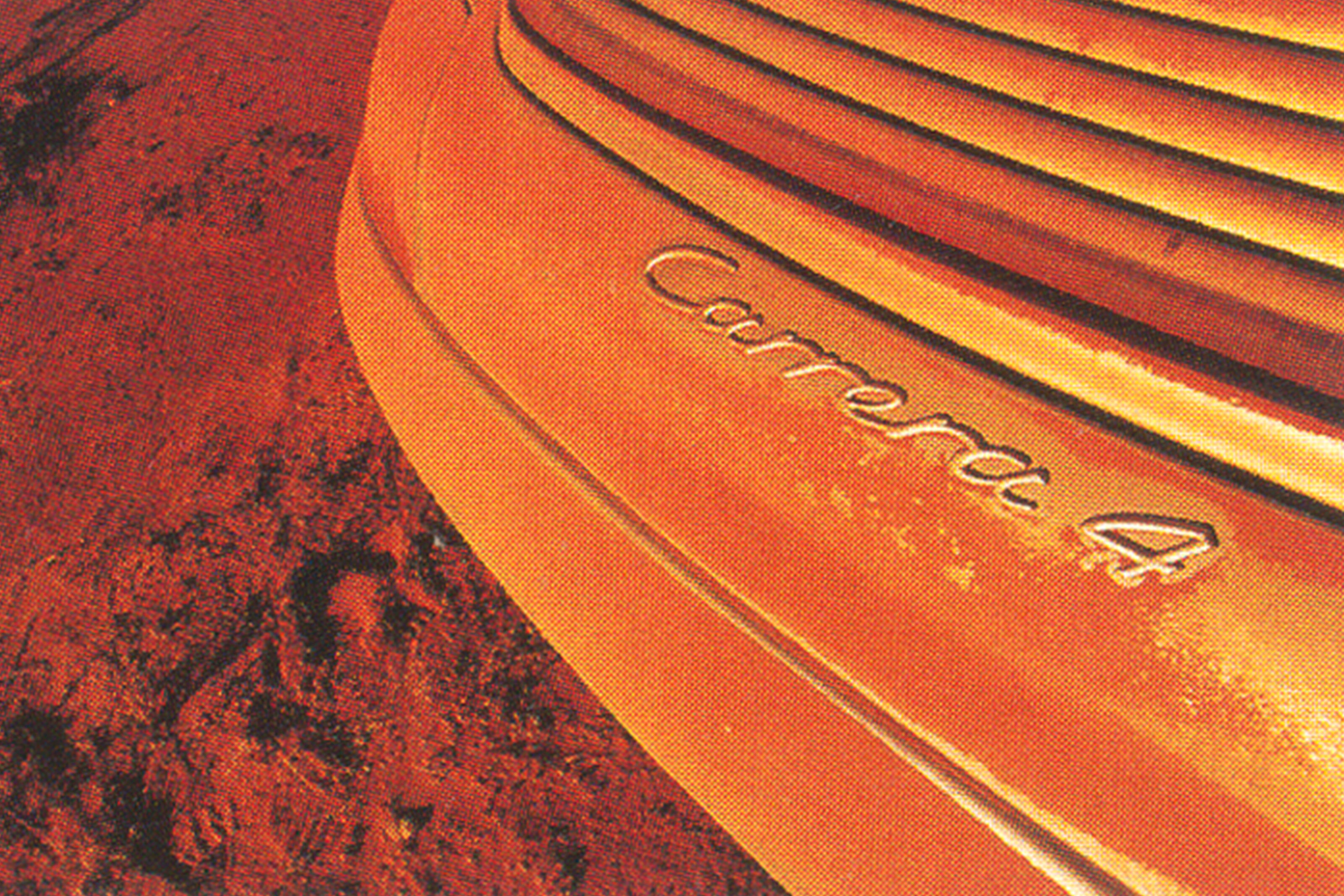
Hmmm. Perhaps it’s an affront to talk about ‘sensible’ when you’re relentlessly belly-flopping over those crests in an autobahn-bred supercar. It’s plainly stupid to have chosen the toughest route across the Simpson, the French Line with its fabled, 4WD-eating sand dune (‘Big Red’) to break you at the end. It’s an oxymoron to mention the ‘fragile desert eco-system’ when, for five days, it’s trying to punch a Porsche propshaft into your pants.
At one stroke, this was the dumbest thing I have ever done in a motor car. And the most impressive thing a motor car has ever done for me. Needless to say, it wasn’t my idea. Somebody at Porsche Cars Australia looked at the 20,000km-old, six-speed manual, ex-press fleet 911 Carrera 4 and had this vision, that’s all. I, meantime, had visions of the magnificent Evan Green and his outback journeys in entirely inappropriate cars.
At one stroke, this was the dumbest thing I have ever done in a motor car. And the most impressive thing a motor car has ever done for me.
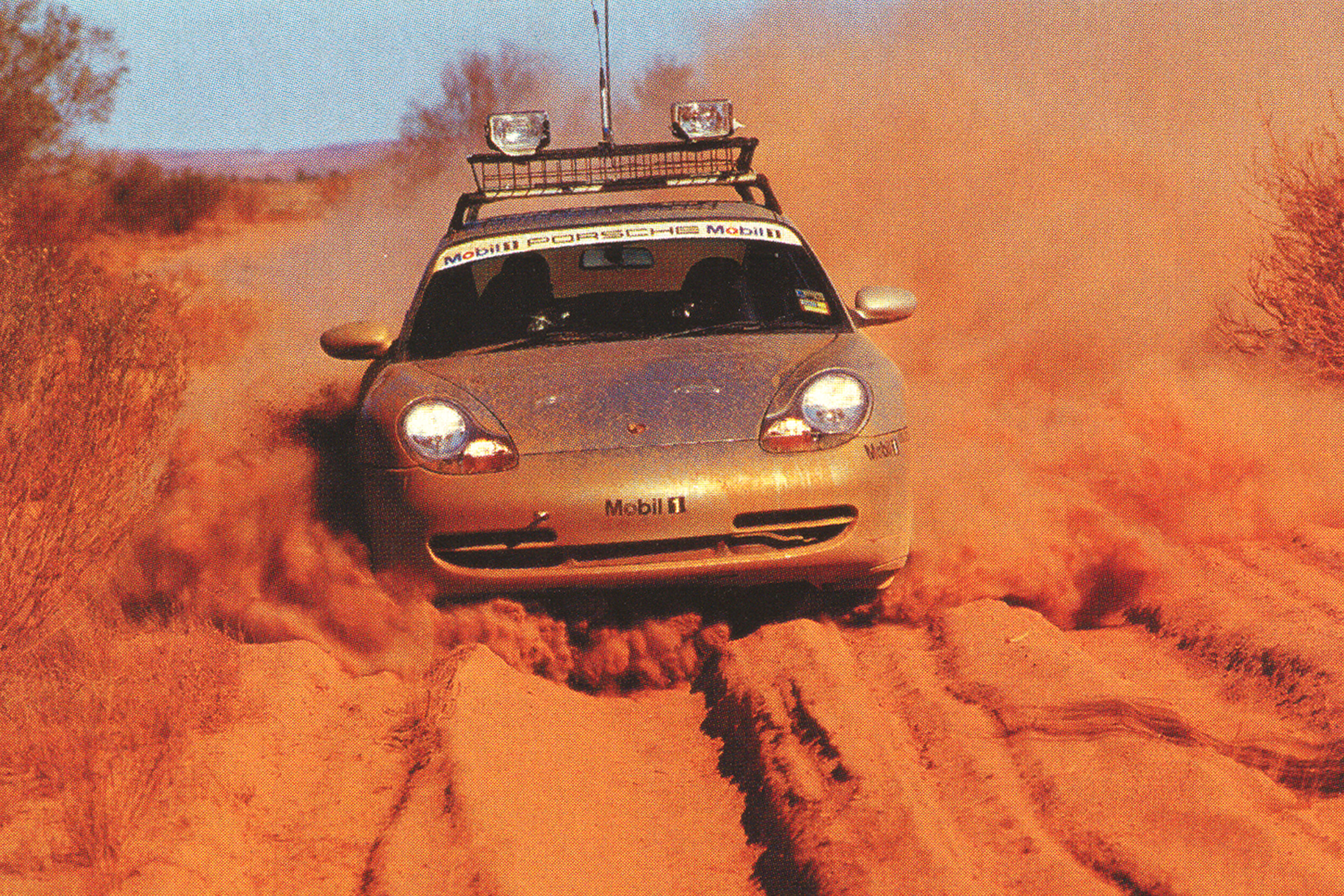
Naturally, the Carrera 4 already has four-wheel drive. What it really needed was some ground clearance. The local guys called the Porsche R&D centre in Weissach, where veteran engineer Roland Kussmaul actually took them seriously. Back in 1979, Kussmaul had run the Repco Round-Australia Trial in a Porsche 924.
Kussmaul volunteered that a 70mm aluminium spacer atop each of the 911’s front struts and rear coil-over dampers, a 10mm spacer beneath each spring and lowering both front and rear subframes by 40mm to reduce angularity on the drivetrain joints, would provide the C4 with around 100mm more air under its belly.
According to Kussmaul, that’s about all they did to come up with the Paris-Dakar 959 back in the early 1980s. Amid all the flurry about Porsche’s Audi-partnered 4WD sport-utility vehicle (to be launched in 2002), it’s worth remembering that Porsche already has a pretty decent handle on the four-wheel drive concept.
Apart from the suspension mods, an alloy engine guard at the rear, a roof-rack and my suspicion that the completed car was left submerged in a vat of LocTite for a week, the Carrera 4 was absolutely stock-standard.
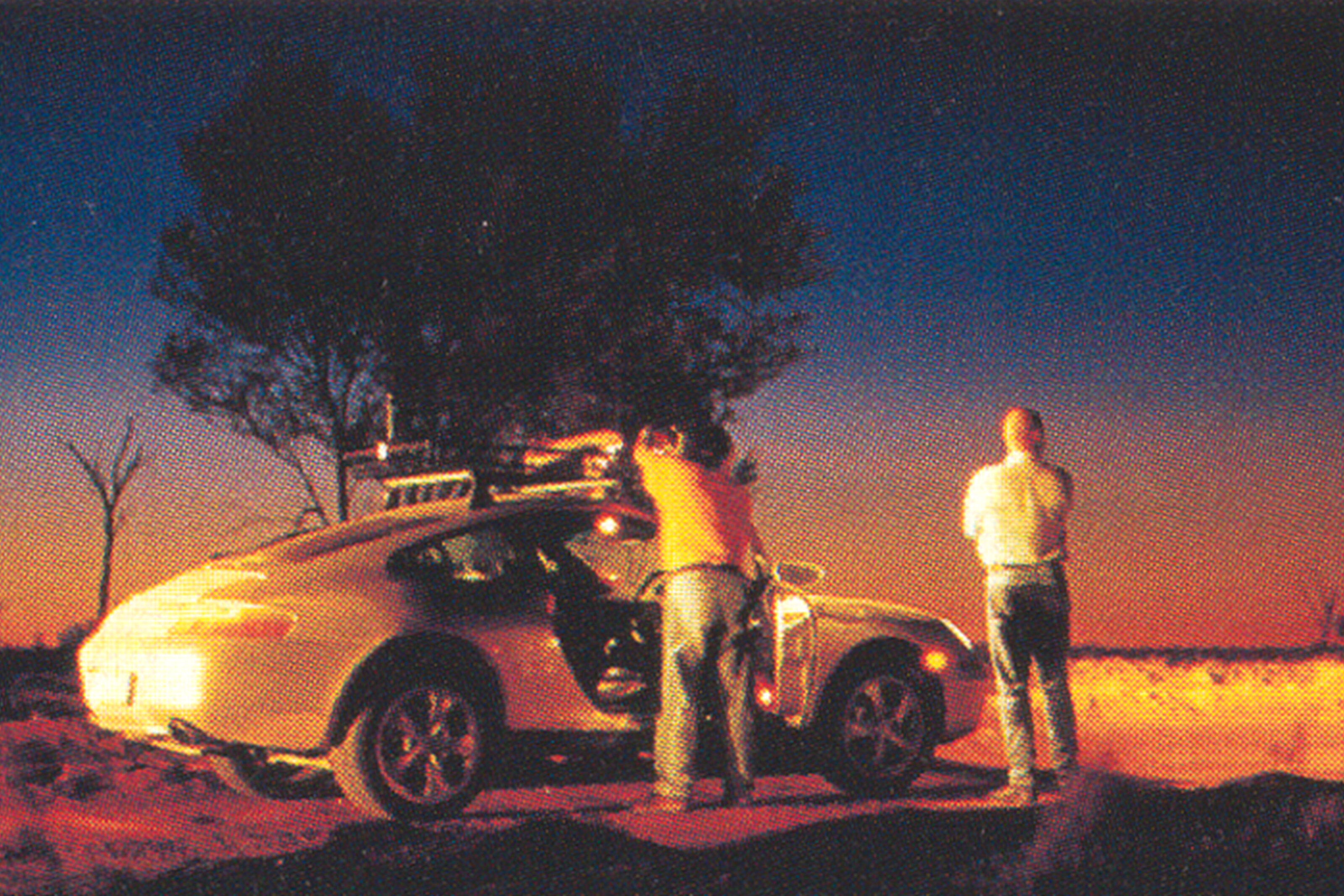
Somehow, it didn’t look all that wrong; a little like a 911 in knee-high socks. Perhaps it was the distant, Paris-Dakar connection, or its bum-in-the-air stance evoked some drug-enhanced recollection of the 1960s Meyers Manx beach buggy. Against the background of the desert, this supercar on stilts looked like some sort of cybernetic sand-crab.
My biggest worry was, of course, that I would die.
Beyond that were the tyres, conventional 17-inch, Z-rated autobahn boots, only slightly broader (225/50 front, 255/45 rear) so as to gain some rock-resisting height in the sidewalls. Then there was the Carrera 4’s meagre fuel capacity of just 63 litres, which might give us a range of as little as 200km in the soft, churning sand.
Would I be stopping every 10 minutes to change punctures? And every five minutes to dig the thing out of the sand? Oh, okay. Nobody could tell me, because nobody had ever done this before.
Collecting the car from Adelaide, I had about 550km of sensible, sealed stuff over which to think about it. On the open highway to Leigh Creek, the Carrera 4 rode only slightly more stiffly and steered just a tad more slowly than a standard C4.
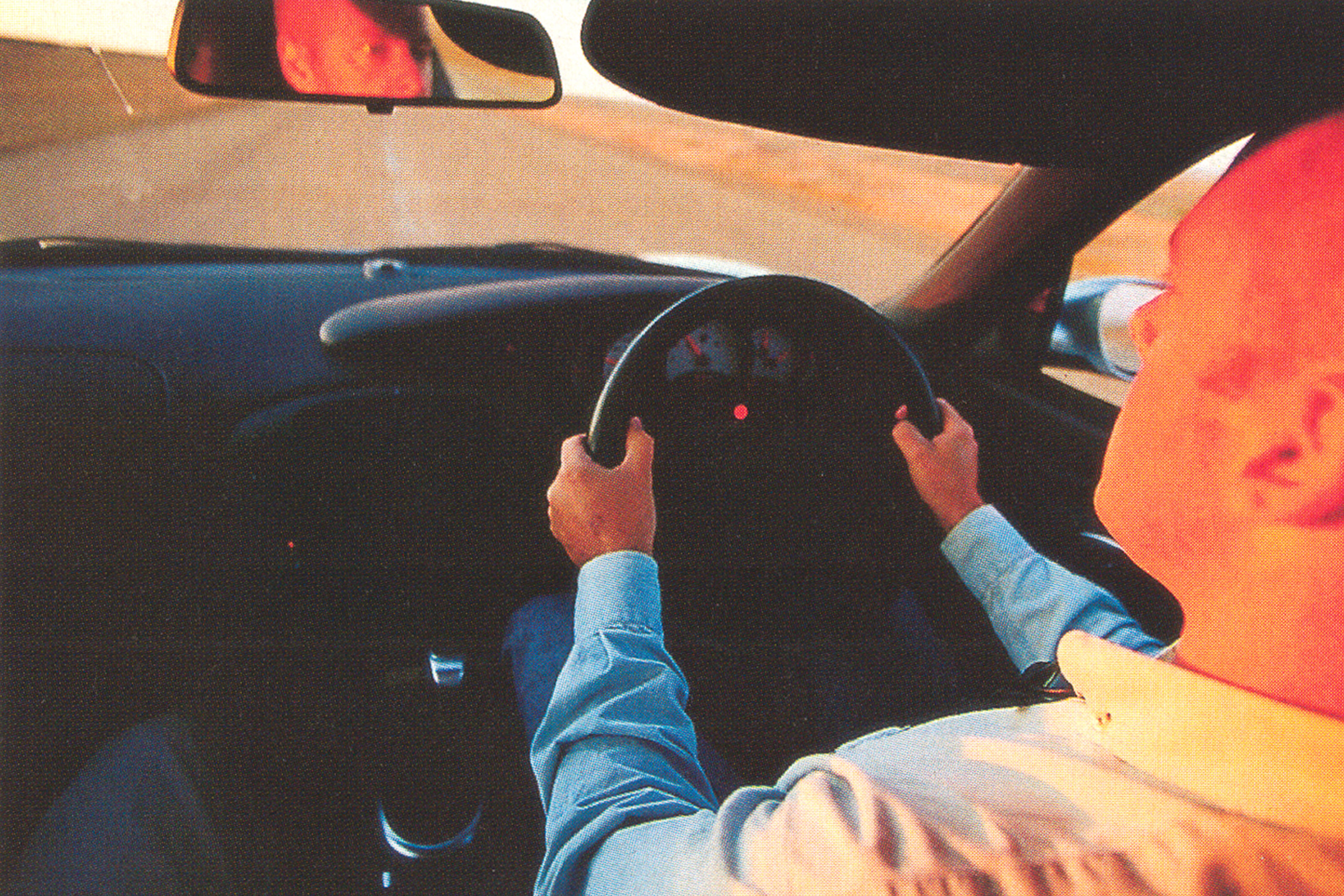
The bitumen ended at Lyndhurst, just 37km north of Leigh Creek. The graded dirt road ahead to Marree, southern junction of the Oodnadatta and the Birdsville Tracks, was dry but had seen recent light showers — evidenced by the shallow but demented tyre tracks that weaved all over its surface like a footballer’s finger-painting.
I sat on 100km/h most of the way, dodging the occasional sharp rocks that jutted out of the road, ignoring the small ones that rattled around the Porsche’s wheel wells and generally trying to pretend I was in a rented Camry. The Carrera 4’s sophisticated Porsche Stability Management system was left on; I figured I might at least postpone my first puncture by keeping things moving in the direction of travel.
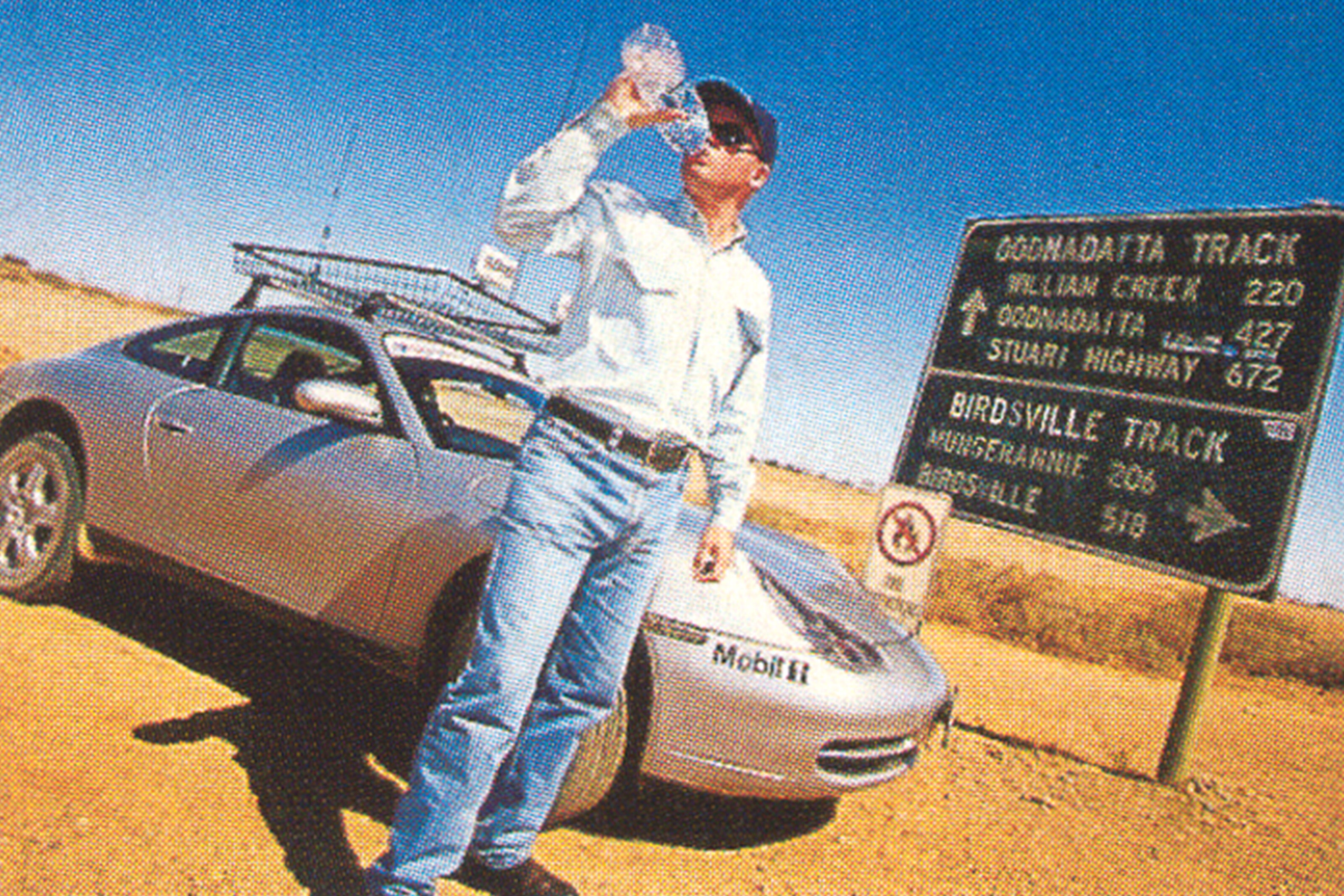
They’d never seen a Porsche in Marree before, and didn’t seem too impressed by their first, either. Perhaps it was because there was a real celebrity due in town that very afternoon.
“Youse here with Tom, are yiz?” asked the lady at the petrol station in Marree’s 100-metre main drag.
Tom? “Yeah, Tom Cruise, he’s coming in at five o’clock today. He’s staying at the Marree Hotel over the road there.”
I was curious, so I asked the woman how he was coming into town. I bloody-well hoped he wasn’t in a Porsche.
“Oh, in the mail truck”, she said, rather off-handedly.
“Tom Cruise, the Hollywood actor?” I asked. She looked at me like I was the biggest wanker ever to come to town (which I might have been, but only until five o’clock). “Nah, Tom Kruse!” she said, he being legitimately famous as the Birdsville Track’s mailman until the late-1950s. Now 85, Kruse had restored his original Leyland Badger mail truck for a final, historic run.
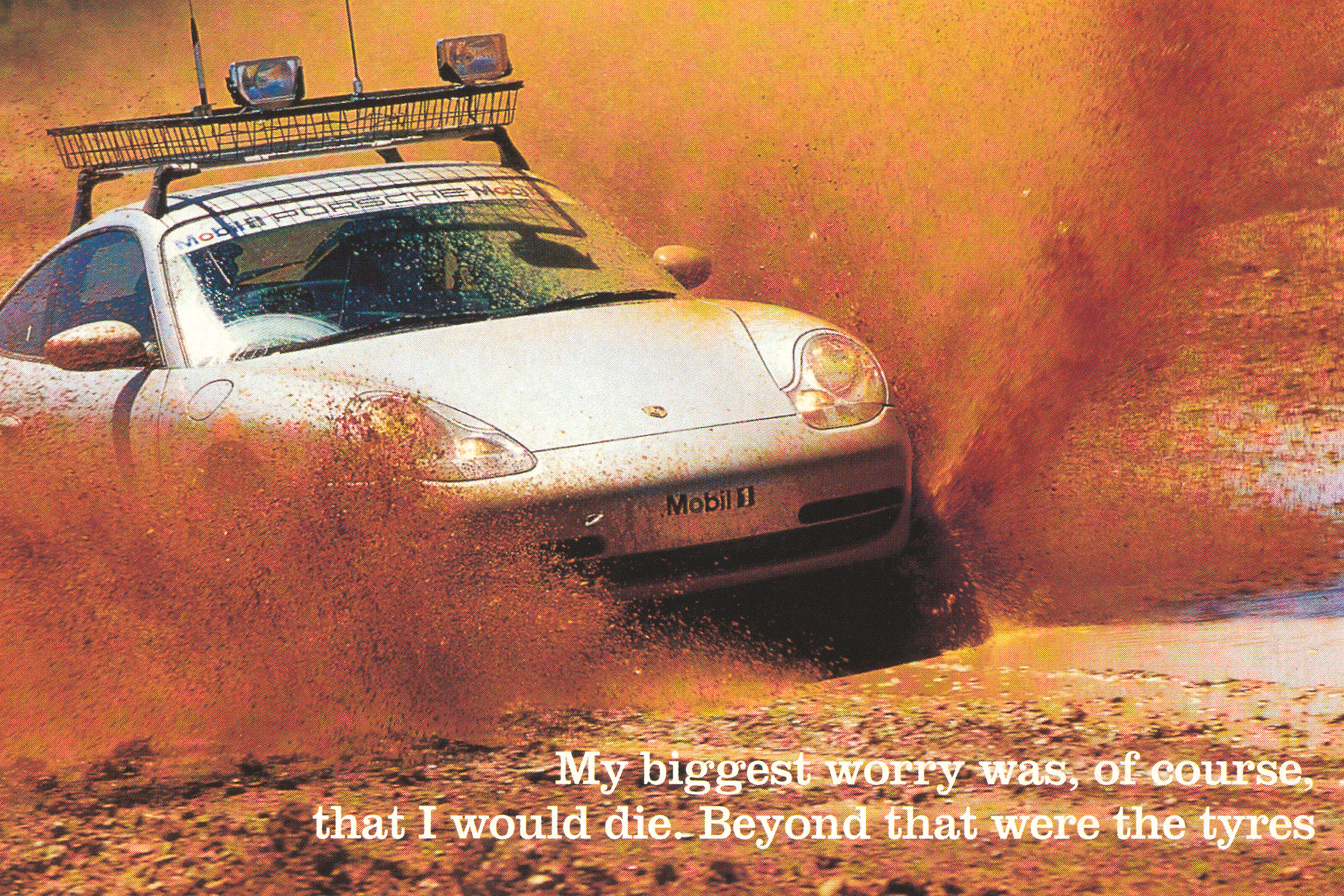
The Oodnadatta Track turned a bit nasty just out of Marree, a candy-stripe ribbon of hardened tyre tracks between worryingly tall, rocky crowns. Without its extra ground clearance, the Porsche would have graunched its guts out along here, where the road skirts the western rim of the vast, 9000 square kilometre Lake Eyre salt flats.
While happy to average about 60km/h, I couldn’t help but think of how, 35 years earlier, Donald Campbell had made rather better time just over to my right, pushing his Bluebird to a new World Land Speed Record of 648.7km/h.
At Oodnadatta, just south-west of the Simpson Desert, the news was good and bad. Linnie Plate, the suitably colourful proprietress of the Oodnadatta Pink Roadhouse, waved a finger disdainfully at the Porsche. “How many tyres has it taken you to get this far?” she asked.
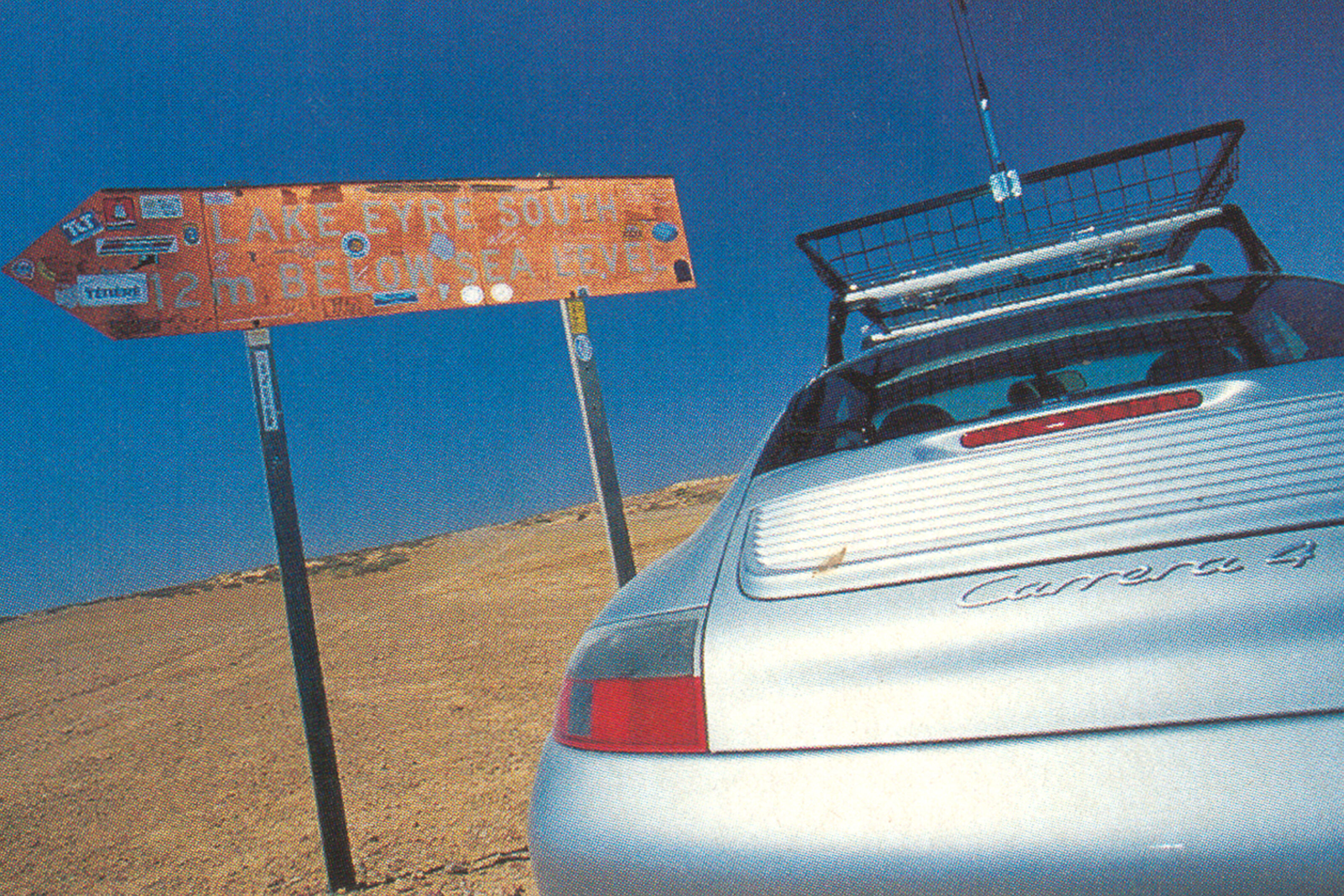
“Actually, just the four that are on it,” I replied, although our HiLux 4WD ute back-up vehicle had already managed to hole two of its own tyres.
“Well, if you’ve made it this far,” Linnie said, “you’re at least half a chance to make it across to Birdsville. Too bad the road’s closed…”
Unseasonal showers two days earlier had created a quagmire between Dalhousie Springs and Freeth Junction, the beginning of the French Line. That meant a detour of at least 90km farther north to Mt Dare homestead, then peeling east to follow the (dry) Finke River to pick up the French Line near Purni Bore.
While happy to average about 60km/h, I couldn’t help but think of how, 35 years earlier, Donald Campbell pushed his Bluebird to a new World Land Speed Record of 648.7km/h
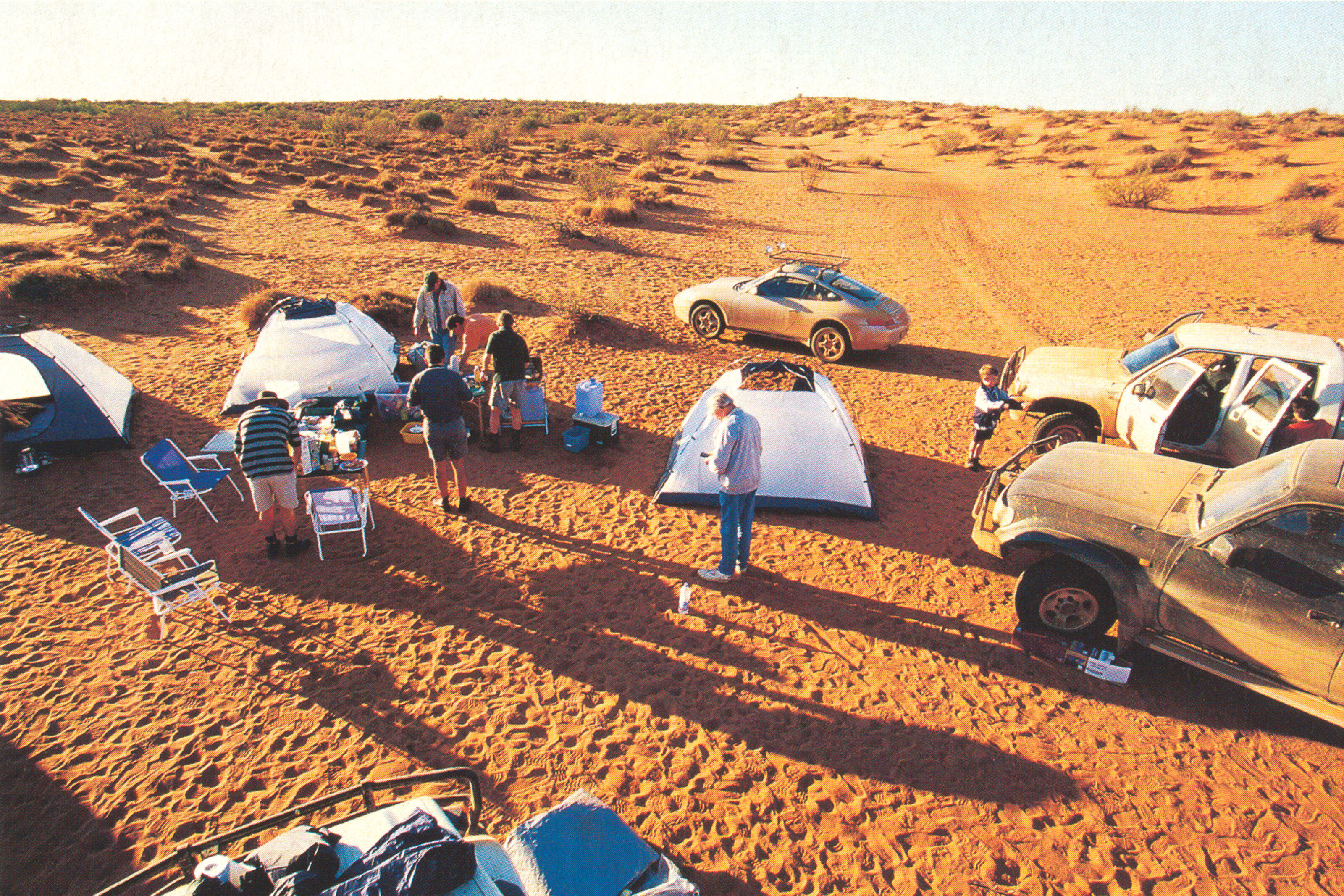
We made camp at Dalhousie Springs, officially into the Simpson Desert, and enjoyed a dip at dawn in the 30-degree water of this remote, thermal spring.
Regrettably, it sort of softened my kidneys for what followed: Four and a half hours over a hard, hot landscape of terracotta tennis-balls Australians know as ‘gibbers’.
Rarely able to top 20km/h, the 911 thumped, jumped and jostled through a routine worse than any durability test rig I’ve seen. I couldn’t help but reflect on how well even a Commodore or Falcon might cope with this stint on Satan’s Thighmaster — let alone any other 280km/h supercar. Yet nothing buckled, bent or blew apart.
Admittedly, the Porsche did get a rest every 20 minutes or so: My bladder was like a magnum of Moet on a grand prix podium.
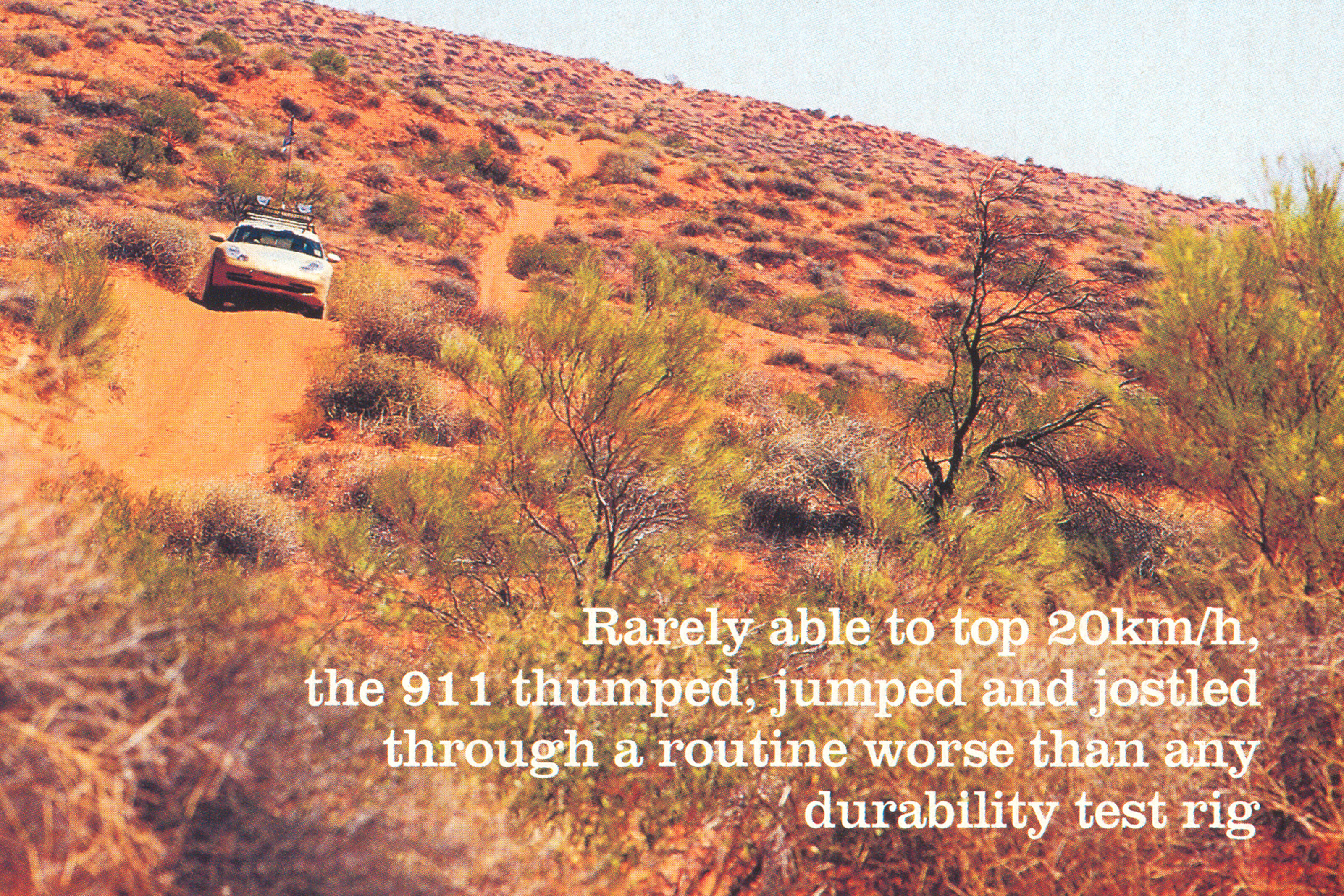
Past the Mt Dare homestead, the gibber plains led onto smooth and potentially fast double-tracks through low scrub. A billowing, grey-white cloud of talcum-fine dust obscured everything in the Porsche’s mirrors.
This was bulldust country, where slightly more pale patches on the road ahead would hide sharp-edged potholes and rambling ruts, anything up to two feet deep. Heavy-duty 4WDs have been known to stuff their suspensions by hitting these potholes too quickly. The Porsche had the added danger of sinking up to its belly if I went too slowly.
Hustling along in second gear, attempting to straddle the narrow raised crowns between this powdery quicksand, I clobbered what felt like a major geological point of interest with the Porsche’s left-front wheel.
My first thought was awful: I would be forced to eat the photographer.
My second thought was that the left-front suspension was probably hanging on by its intestines. But the strut tower was okay; the control arm, steering rod, wheel rim and even the tyre’s scrawny vulnerable sidewalls were all intact. So was the ground when I kissed it.
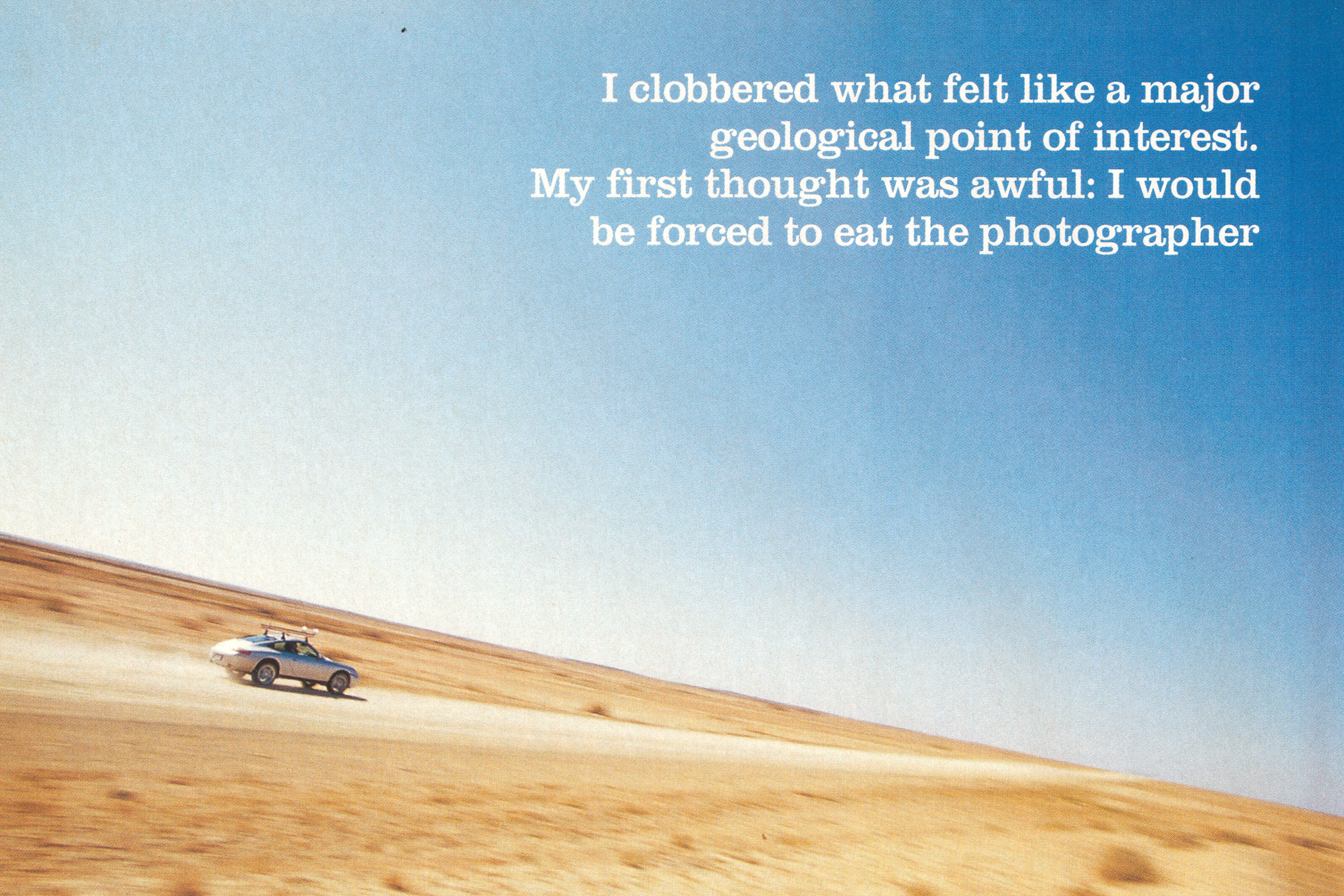
Purni Bore, some 140km into the west-to-east crossing, is a visually tantalising oasis. Sadly, the water that rises from the ground at a formidable 80 degrees is too toxic to be of much use to humans. At night, the air was alive with the muffled grunts and farts of curious wild camels, mules and dingos, stirring just beyond the firelight.
There were other 4WDs where we camped. Some 4000 to 5000 people cross the Simpson each year between May and October, many taking the easier, more southern Rig Road. Of the dozen-odd fellow travellers we saw on the French Line during the daytime, most seemed to be blokes who’d taken a week off work, piled into a mate’s 4WD and wandered into the desert to get drunk.
At the very tail end of the ‘tourist’ season, the tracks up several dune faces were churned soft, the clay pans between hammered hard into a jaw-chattering washboard surface that frustrated the Porsche’s speed to less than 25km/h.
Photographer Watkins suggested we go flat out, only stopping to rebuild the car when necessary – a sort of three-stop strategy – but any slight change in the height or pitch of the corrugations would set the steering rack a-slapping and the front end a-flapping.
With my tyre record still intact, there was nothing for it but to be patient. The Porsche and I were going to carry each other to Birdsville.
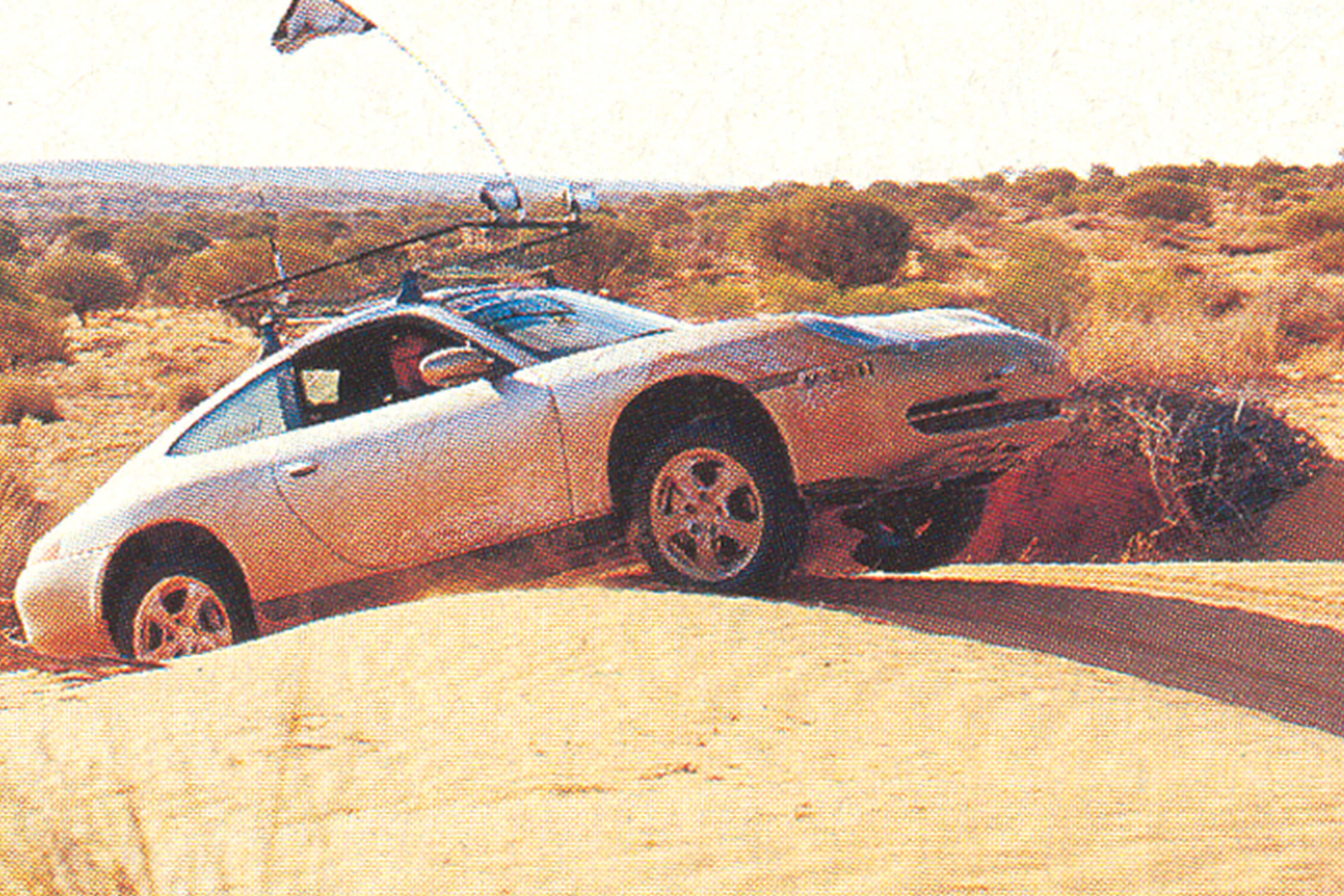
The sand? There wasn’t enough in all the desert. Few would know that a new 911 on high-performance road tyres makes a total hell-weapon in the sand dunes. (Maybe a Ferrari 360 makes a great speedway Sprintcar and a Bentley Arnage can drive all day under the ocean. It’s just that nobody bothers to find out).
At its initial sniff of sand, however, der dunemeister was every bit as useless as a 911 ought to be in the middle of a desert. In soft sand, the Carrera 4’s PSM system was too damn smart for its own good, individually braking wheels to counter slip but losing the car’s momentum in the process.
With PSM disabled (and the tyres deflated by a scientific, hmm, 15 seconds each), the fat-pawed Porsche planed across the surface of the fine, ever-shifting sand. It rudely blasted up the face of most dunes in second gear at close to 60km/h, making big, stupid idiots of those fat, churning 4WD wagons that often needed two or three attempts to swagger over the top.
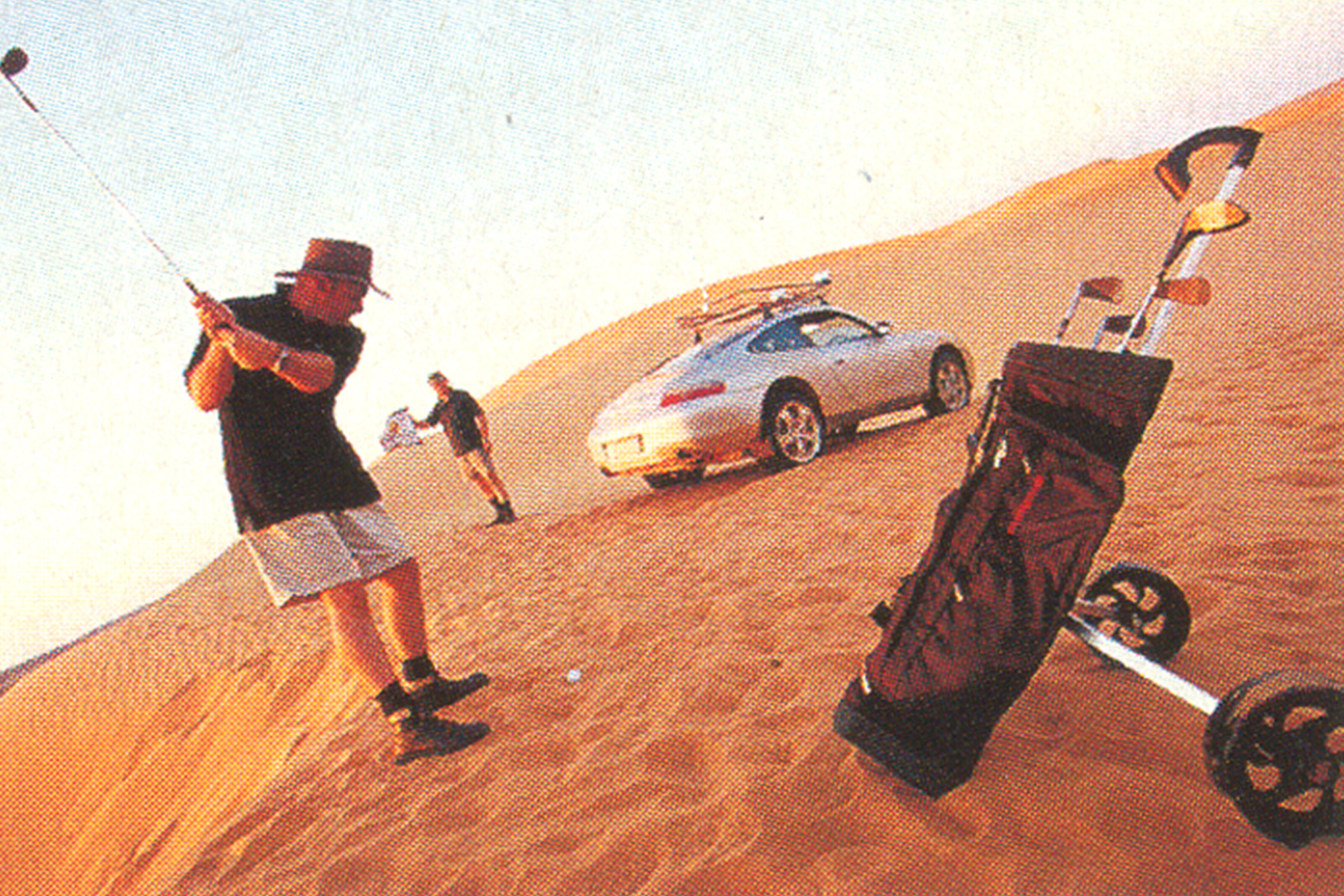
I had to roll out of the Porsche’s throttle as the car hit each crest, the plastic chin spoiler thumping through three-foot walls of sand built up by a strong headwind. Dozens of times we see-sawed blind over these collapsing crests on the car’s bellypan, having no idea where the track went but no option to stop and look.
A shattered front spoiler (and consequently noisy cooling fans) was absolutely the only damage sustained by Dr Ferry’s fish most definitely out of water. In 35-degree ambient heat, the engine temperature never crept over 110. Only twice in the entire trip did I need to reverse for a second run at anything – and one of those times was when I forgot to turn off the PSM. And the 911 completed this entire, remarkable journey under its own steam, and on its original set of tyres.
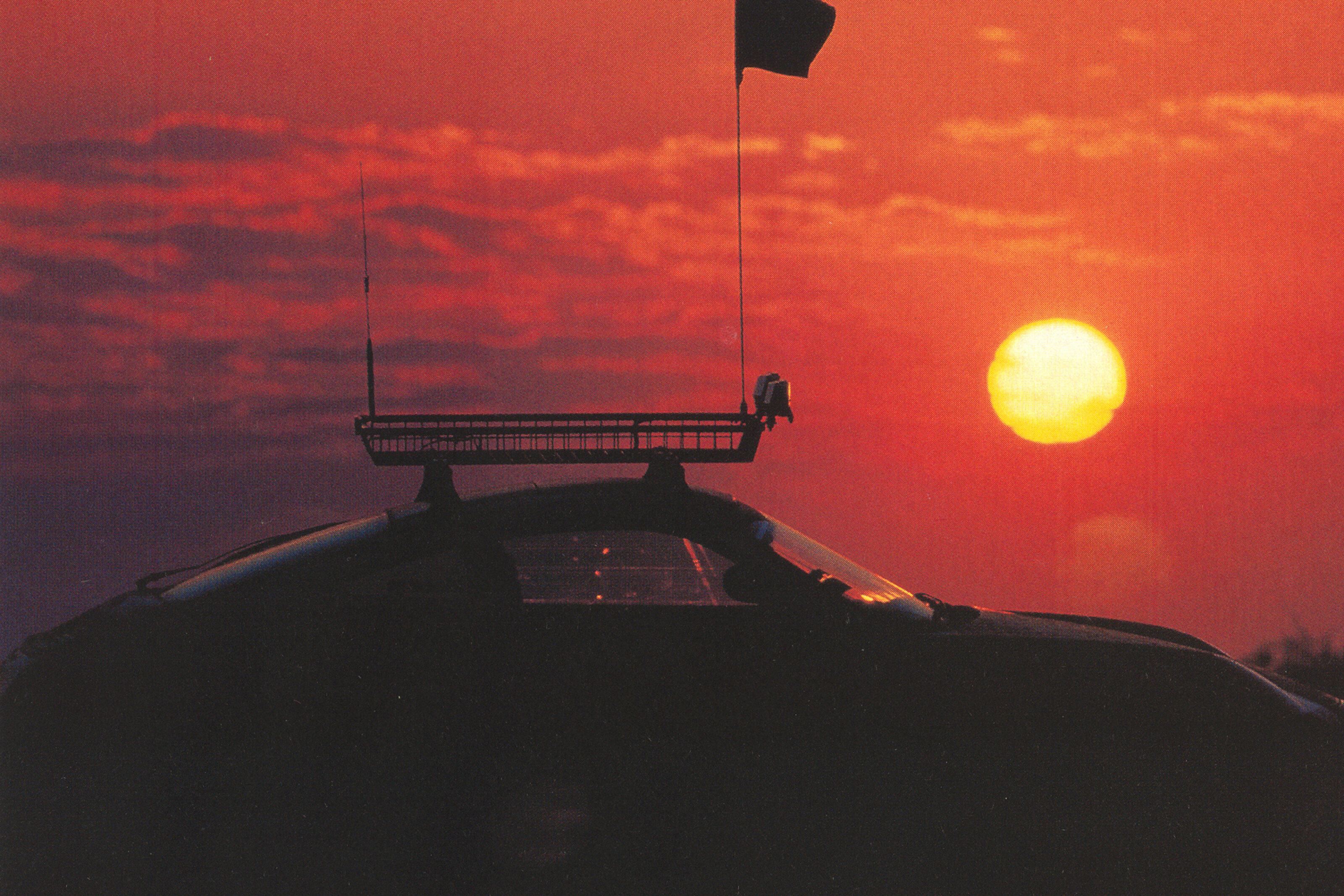
Big Red? Only 30km from Birdsville, this 30m-tall, apricot-coloured moving mountain has been known to reduce crocodile-wrestling outback types to dribbling idiots. (Notwithstanding the three days’ beer consumption in getting this far).
Well, we went up Big Red in second gear, 80 kays an hour. Twice. Piece of piss in a Porsche. The Birdsville blokes are still eating their Akubras. Still, how were they to know?



